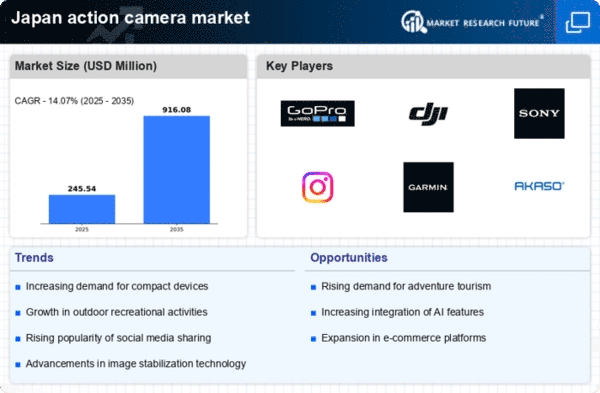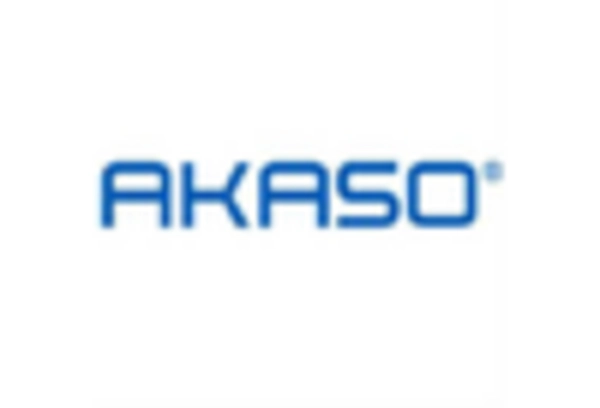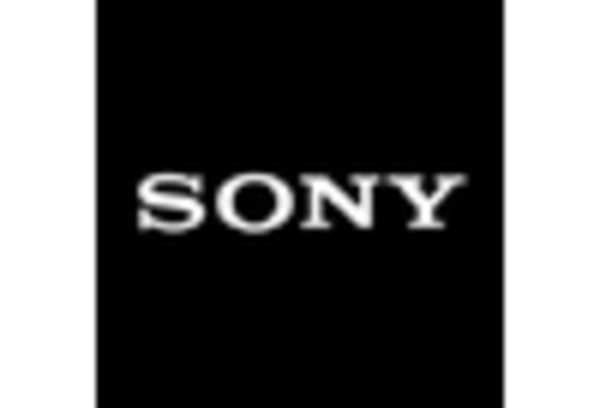Rising Adventure Tourism
The action camera market in Japan experiences a notable boost due to the increasing popularity of adventure tourism. As more individuals seek thrilling experiences such as hiking, skiing, and diving, the demand for action cameras rises. In 2025, the adventure tourism sector in Japan is projected to grow by approximately 15%, indicating a strong correlation with the action camera market. Tourists and locals alike are inclined to document their experiences, leading to a surge in sales of compact, durable cameras that can withstand extreme conditions. This trend suggests that the action camera market is likely to benefit from the growing interest in outdoor activities, as consumers prioritize capturing high-quality footage of their adventures.
Integration of Advanced Features
The action camera market in Japan is witnessing a trend towards the integration of advanced features in new models. Consumers are increasingly seeking cameras equipped with capabilities such as 4K video recording, image stabilization, and waterproof designs. In 2025, it is estimated that over 60% of action cameras sold will feature these advanced functionalities. This demand for high-performance devices indicates a shift in consumer expectations, as users desire equipment that can deliver professional-quality results. Manufacturers are responding by innovating and incorporating cutting-edge technology into their products, which is likely to enhance the appeal of the action camera market and attract a broader audience.
Influence of E-commerce Platforms
The action camera market in Japan is significantly influenced by the rise of e-commerce platforms. With the increasing penetration of the internet and mobile devices, consumers are more inclined to purchase action cameras online. In 2025, online sales are expected to account for over 40% of total action camera sales in Japan. This shift towards digital shopping allows consumers to compare prices, read reviews, and access a wider range of products. Consequently, manufacturers are focusing on enhancing their online presence and marketing strategies to cater to this growing segment. The convenience and accessibility of e-commerce platforms are likely to drive the action camera market further, as consumers seek to make informed purchasing decisions.
Increased Focus on Health and Fitness
The action camera market in Japan is experiencing growth due to the rising focus on health and fitness among consumers. As more individuals engage in outdoor activities and fitness regimes, the demand for action cameras that can document these experiences is on the rise. In 2025, it is anticipated that the fitness-related action camera segment will grow by approximately 25%. This trend indicates that consumers are looking for ways to track their progress and share their fitness journeys. Consequently, manufacturers are likely to develop specialized action cameras that cater to this health-conscious audience, further driving the action camera market.
Growing Popularity of Content Creation
The action camera market in Japan is significantly impacted by the growing trend of content creation among individuals. As social media platforms continue to thrive, more users are motivated to produce high-quality video content. In 2025, it is projected that the number of content creators in Japan will increase by 20%, driving demand for action cameras that can capture dynamic footage. This trend suggests that the action camera market is likely to benefit from the increasing desire for unique and engaging content. As consumers seek to enhance their storytelling capabilities, manufacturers are expected to focus on developing cameras that cater to the needs of this burgeoning demographic.
















